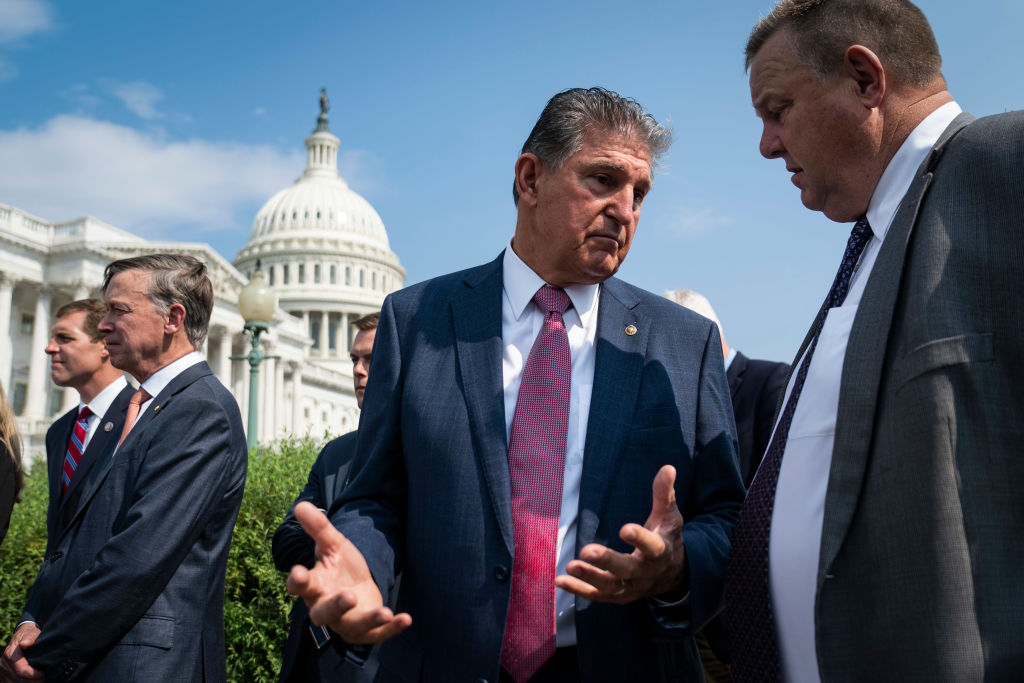Late Wednesday evening, December 8, the Senate voted to repeal President Joe Biden’s mandate demanding COVID-19 vaccines or testing for private companies with more than 100 employees. In a move that was more bipartisan than many in the United States Senate of recent months, two Democrat senators crossed the aisle to vote with Republicans, resulting in a 52-48 split.
Senators Joe Manchin (D-WV) and Jon Tester (D-MT) sided with the resolution against the Occupational Safety and Health Administration (OSHA) rule requested by Biden, along with all GOP lawmakers in the upper chamber.  A resolution of disapproval was passed under the Congressional Review Act, meaning that only a simple majority was required.
A resolution of disapproval was passed under the Congressional Review Act, meaning that only a simple majority was required.
During the 2020 election campaign – and after – Joe Biden promised the American people that he would work with his colleagues in the opposition party to usher in a new era of bipartisan cooperation. Yet it seems that in this instance, the president is going to ignore the majority will of the Senate and proceed apace.
Insurmountable Roadblocks
Despite the Senate vote, the likelihood of Biden repealing his mandate is slim. As Liberty Nation’s James Fite detailed earlier this week:
“[T]here’s almost certainly no way a majority could be had in the House – and even if there were, it seems unlikely Speaker of the House Nancy Pelosi (D-CA) would allow a vote. Then there’s that veto. Why wouldn’t Biden veto any resolution to nullify one of his executive actions?”
White House officials have indicated the president would absolutely veto such a resolution should it land on his desk.
However, due to legal challenges, the OSHA rule is presently suspended. On November 12, the Fifth Circuit U.S. Court of Appeals in New Orleans determined that the mandate “raises serious constitutional concerns” and “likely exceeds the federal government’s authority.” The Labor Department (to which OSHA is answerable) responded its compliance with the court order in a statement, saying:
“The court ordered that OSHA ‘take no steps to implement or enforce’ the ETS [emergency temporary standard] ‘until further court order.’ While OSHA remains confident in its authority to protect workers in emergencies, OSHA has suspended activities related to the implementation and enforcement of the ETS pending future developments in the litigation.”
Yet Anger Persists
Democrat leaders voiced their anger over the move to repeal Biden’s mandate. Prior to the vote taking place, Senate Majority Leader Chuck Schumer (D-NY) lamented, “I know wild stories on the Internet, lies sometimes get in people’s heads, but we can’t listen to lies … We’re a fact-based society. We always have been.” He later decried the outcome of the Senate vote, saying, “If their plans go into effect, Covid will linger longer and the chance of new variants and new more dangerous variants occurring increases … It is anti-science, anti-common sense, it makes no sense.”
An official White House statement echoed Schumer’s concerns, reading that it “makes no sense for Congress to reverse this much needed protection of our workforce.”
A Long Road Ahead for Joe Biden
Although the president will veto the resolution if it makes it through the House, his efforts to apply vaccine mandates are still in troubled waters. Courts across the nation are ruling against him. LN’s Kelli Ballard put it succinctly when she wrote, “President Joe Biden [on Dec. 7] lost a third attempt to enforce vaccine mandates after a federal judge blocked the requirement for businesses, saying the government had exceeded its authority. The courts have now put a hold on all three of the president’s mandates; the first two regarding businesses with 100 or more employees, and another that targeted health care workers.”
With the Senate loss on Capitol Hill and members of the judiciary ruling time and time again against the constitutionality of vaccine mandates, the president faces an uphill battle should he wish to continue along this track. He may have the power to veto a resolution of disapproval, but he can’t veto the Supreme Court – which is where this question will likely be decided.
~ Read more from Mark Angelides.









